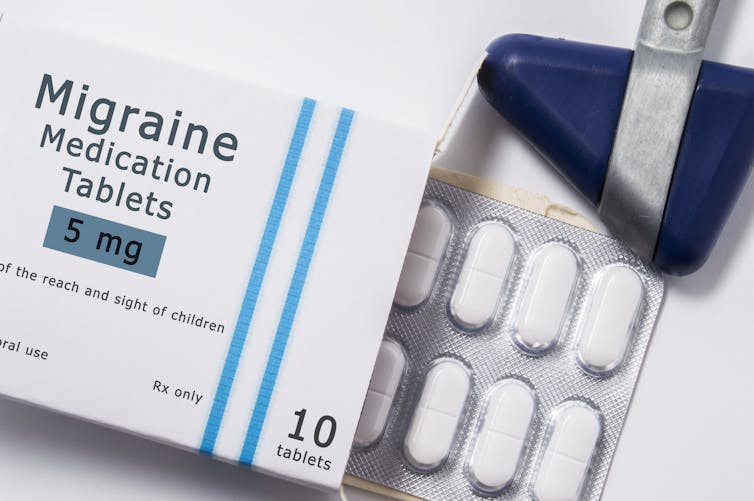
St John’s wort is an herbal supplement that has been used for centuries to boost mood. Even today, many people use it as a natural treatment for mild to moderate depression. St John’s wort contains several active compounds, such as hypericin and hyperforin, which are believed to influence mood.
Studies which have investigated the efficacy of St John’s wort have shown mixed results about its effectiveness for treating symptoms of depression. But while this treatment is not currently recommended by health authorities in the UK, many people still purchase the supplement from pharmacies and health food shops — seeing it as a more natural alternative to antidepressants.
But what people might not realise is that although it’s derived from a natural source, St John’s wort can have potentially serious interactions with other prescription drugs.
Here are six you should know about if you use this supplement:
1. Hormonal contraceptives
St John’s wort is known to have an effect on certain liver enzymes which break down drugs. The plant derivative can act as an enzyme inducer – increasing the clearance of hormonal contraceptives. This makes them less effective and increases the chance of pregnancy.
It’s recommended that people who use combined oral contraceptive pills, progestogen-only pills or the implant avoid using enzyme inducers – such as St John’s wort. The Medicines and Healthcare Products Regulatory Agency (MHRA) have also reported some cases of unplanned pregnancies in women using the implant and St John’s wort.
St John’s wort is not found to decrease the effectiveness of injectable progestogen contraceptives, the hormonal coil IUD and non-hormonal options, such as the copper coil.
2. Anti-depressants
There are different types of anti-depressants. The most commonly prescribed are selective serotonin reuptake inhibitors (SSRIs), such as citalopram and sertraline. Other anti-depressants include monoamine oxidase inhibitors (MAOIs) such as phenelzine, which are less commonly prescribed.
Both types of anti-depressants are thought to work by increasing the levels of chemicals in the brain called neurotransmitters. In particular, they’re thought to increase levels of the neurotransmitters serotonin and noradrenaline (norepinephrine), which are linked to mood.
It’s uncertain how St John’s wort works – but it’s thought it works in a similar fashion to anti-depressants by increasing levels of the same neurotransmitters.
Combining St John’s wort with these anti-depressant drugs may lead to excessive serotonin levels – increasing the risk of serotonin syndrome. This is a relatively uncommon but serious reaction. It can cause mild symptoms – such as confusion, muscle twitching and sweating – as well as life-threatening symptoms, including seizures and irregular heartbeat.
3. Anti-migraine drugs
Triptans, such as sumatriptan, are sometimes used as an alternative to painkillers in the treatment of migraines.
The exact cause of migraines is not fully understood but may be partly linked with temporary widening of blood vessels in the brain. Triptans target the serotonin receptors on these blood vessels, causing them to narrow. This may help alleviate migraine symptoms.

As triptans work by mimicking serotonin, combining them with St John’s wort can lead to excessive serotonin levels, increasing the risk of serotonin syndrome.
4. Anti-epileptic drugs
Since St John’s wort is a liver enzyme inducer, theoretically this may cause it to breakdown anti-epileptic drugs – such as carbamazepine and phenytoin. This means they could be less effective, and put people at risk of seizures.
There has also been a reported case where a patient experienced more frequent, severe seizures when taking St John’s wort with a type of anti-epileptic that was not initially thought to interact with the herbal supplement. As such, the current advice from the MHRA is to avoid using St John’s wort if you take an anti-epileptic drug.
5. Warfarin
Warfarin is the most commonly prescribed anti-coagulant drug in the UK. It’s often used to prevent blood clots from forming in people with heart arrhythmias (such as atrial fibrillation or deep vein thrombosis).
But some clinical evidence suggests St John’s wort induces the same liver enzymes that break down warfarin. This could make warfarin less effective and raise the risk of clotting.
Preferably, patients should avoid using St John’s wort if they take warfarin. If they do take them together, they should have their INR (international normalised ratio – the time it takes for blood to clot) checked regularly to reduce risk of clots or bleeds.
6. Anti-retroviral drugs
Some anti-retroviral drugs used to treat HIV (such as lopinavir/ritonavir and efavirenz) are metabolised by liver enzymes. Many are also moved in and out of cells by pumps called P-glycoprotein. But St John’s wort can induce the same liver enzymes and pumps as these drugs, which reduces the amount of these anti-retroviral drugs in the body. This can raise the viral load in an infected person’s blood.
While a small study showed no significant interaction with St John’s wort and the liver enzymes involved in metabolising these drugs, this finding was based on a preparation of St John’s wort that contained low levels of hyperforin. Since some preparations have higher levels of hyperforin, it’s important future research investigates whether these types have any significant effect. If you take anti-retroviral drugs and do decide to use St John’s wort, it’s important you have your viral load levels checked regularly.
There are other drugs that can potentially interact with St John’s wort, too. These include erectile dysfunction drugs, some opioid painkillers and immunosuppressants. It’s important to consult a doctor or pharmacist before taking St John’s wort – especially if you take other prescription drugs.
![]()
Dipa Kamdar does not work for, consult, own shares in or receive funding from any company or organisation that would benefit from this article, and has disclosed no relevant affiliations beyond their academic appointment.



